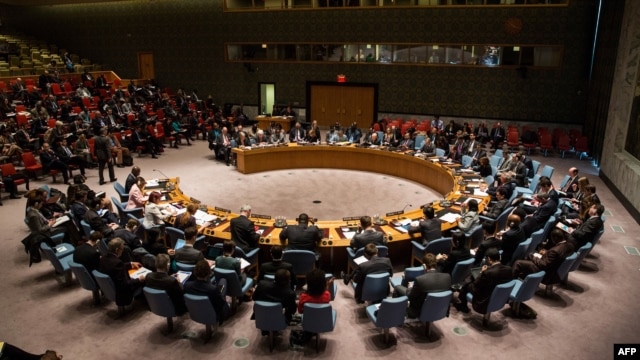The U.N. Security Council on Tuesday partially eased a decade-long arms embargo on Ivory Coast and removed a ban on its diamond exports, a measure that U.N. experts said had failed to stop illicit trafficking.

The West African country, emerging from a decade-long crisis that culminated in a brief war in 2011, has been pressing the Security Council to end the diamond embargo that was put in place in 2005.
U.N. experts have valued the annual illicit trade in Ivory Coast diamonds at between $12 million and $23 million. Before the embargo, Ivory Coast - the world's top cocoa producer - produced around $25 million worth of diamonds, according to industry experts.
U.S. Deputy U.N. Ambassador Jeffrey DeLaurentis told the council after the vote that the United States had advocated for a more gradual approach to adjusting the arms embargo due to the security reform challenges still faced by the country.
"We recognize the government of Cote d'Ivoire's need to build capable and professional security forces," he said.
"We were concerned however by the findings in the Group of Experts report regarding inconsistent compliance with existing arms embargo procedures," DeLaurentis said. "We therefore urge Cote d'Ivoire to tighten its control over arms and ammunition and to continue the important work of security sector reform."
The Group of Experts monitor compliance with the U.N. Security Council's sanctions regime.
'BLOOD DIAMONDS'
The Security Council made a similar change last year to an arms embargo on Somalia to allow the government in Mogadishu to strengthen its security forces. Earlier this year, council delegations urged the Somali government to exercise greater care in ensuring that arms are not diverted to Islamist insurgents.
"The government of Cote d'Ivoire remains committed to fully cooperate with the United Nations and the international community in order to carry out all of the expected reforms in this regard," Ivory Coast U.N. Ambassador Youssoufou Bamba said.
"We hope that during the next review of this issue the security council will be able to bring a definitive end to the sanctions regime for Cote d'Ivoire," he told the council.
Ivory Coast received a clean bill of health in November from the Kimberley Process, the body tasked with preventing the sale of so-called "blood diamonds" from fueling armed conflict.
But the U.N. reported to the Security Council this month "that the measures and restrictions imposed by the Security Council ... still do not prevent the trafficking of Ivorian rough diamonds.
"The group furthermore notes that, in spite of having identified violations of the diamond embargo in its public reports since 2006, the Ivorian authorities have made no progress in combating the smuggling of diamonds nor taken any concrete initiatives to date," according to the report.
Ivorian authorities have said they would like to relaunch the sector to fund post-war reconstruction.
Blood diamonds were thrust into the global spotlight in the 1990s during a succession of African conflicts where their trade financed arms purchases and resulted in human rights abuses.

No comments:
Post a Comment
Note: Only a member of this blog may post a comment.